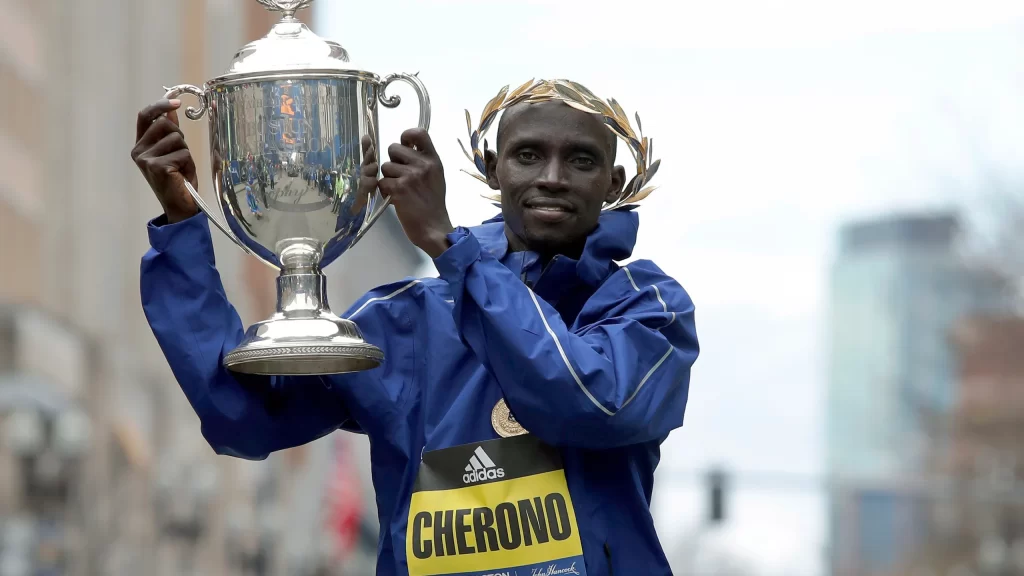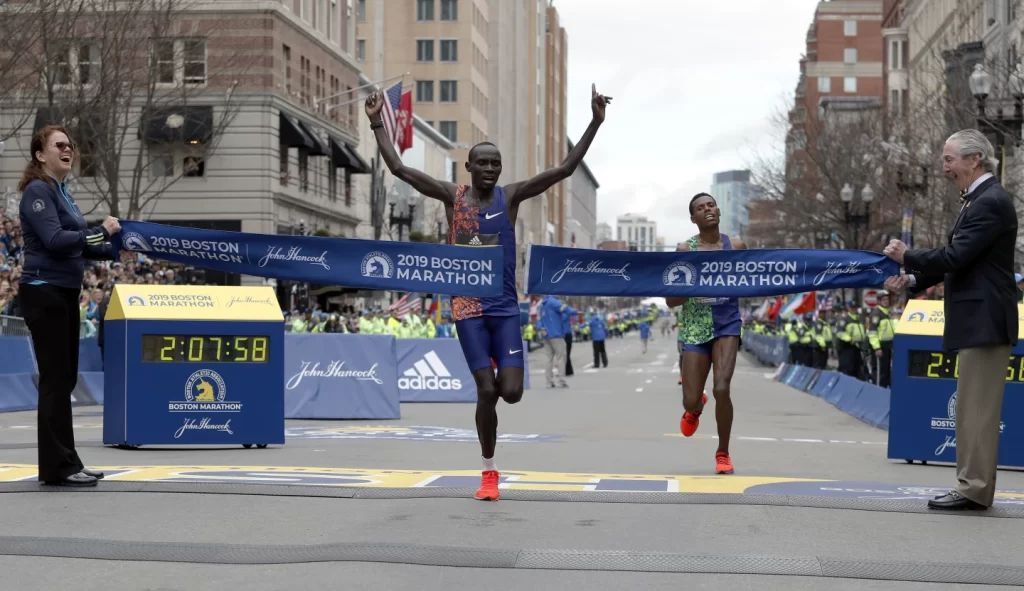Lawrence Cherono, the accomplished Kenyan marathon runner who clinched victories in both the Boston and Chicago marathons, has been slapped with a seven-year ban by the Athletics Integrity Unit (AIU) for doping violations and attempting to use fraudulent documents to justify his failed drug test, reports The Associated Press.
The 35-year-old athlete, whose personal best time of 2 hours, 3 minutes, and 4 seconds stands as the 12th-fastest marathon in history, tested positive for the banned substance trimetazidine in 2022. This positive result led to his immediate suspension, preventing him from competing in the World Championships in Eugene, Oregon.

The AIU’s investigation, which spanned nearly two years, revealed a complex web of deception in Cherono’s attempts to explain his positive test. According to the AIU, Cherono made several unsubstantiated claims, including being injected with an “unknown substance” by a doctor for a stomach complaint and implicating “jealous” training partners. He also submitted forged documents from a clinic to support a claim that his wife had mistakenly given him her prescribed medication instead of painkillers.
However, the AIU’s thorough investigation, which included obtaining medical records through a court order in Kenya, found no evidence to support Cherono’s explanations. This attempt to mislead anti-doping authorities resulted in an additional charge of “tampering” with the anti-doping process, contributing to the severity of his ban.
Cherono’s ban is backdated to the start of his provisional suspension in 2022. Given his age, this lengthy suspension could potentially spell the end of his career at the elite level of marathon running, a significant fall from grace for an athlete who won both the Boston and Chicago marathons in 2019.

This high-profile case underscores the ongoing challenges in combating doping in athletics and highlights the severe consequences athletes face not only for using prohibited substances but also for attempting to deceive anti-doping authorities. It serves as a stark reminder of the importance of integrity in sports and the rigorous processes in place to maintain fair competition.
As the athletics community grapples with this case, it reinforces the need for continued vigilance, education, and stringent testing protocols in the fight against doping. The ban also raises questions about the prevalence of doping in long-distance running and the measures needed to ensure clean sport at the highest levels of competition.
Cherono’s case stands as a cautionary tale for athletes worldwide, emphasizing the far-reaching consequences of doping violations and the importance of honesty and transparency in the face of anti-doping investigations. As the sport moves forward, this incident will likely fuel ongoing discussions about the integrity of competitive running and the effectiveness of current anti-doping measures.
AP



